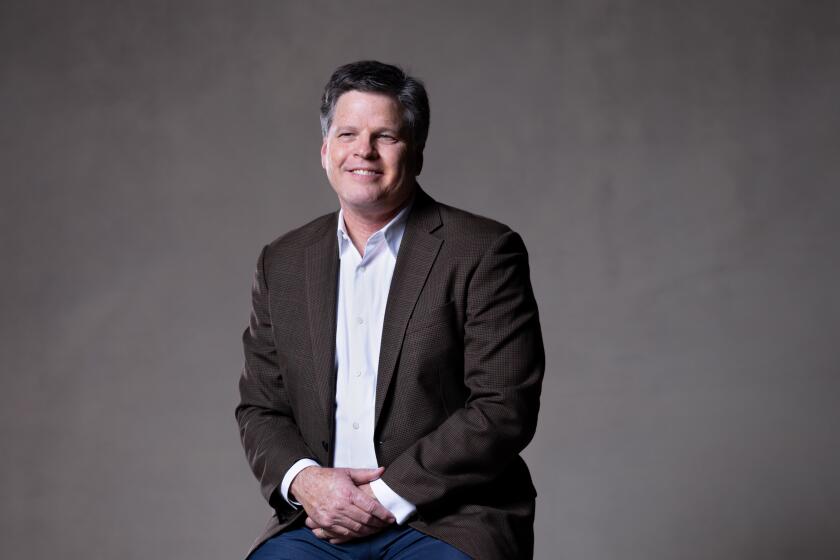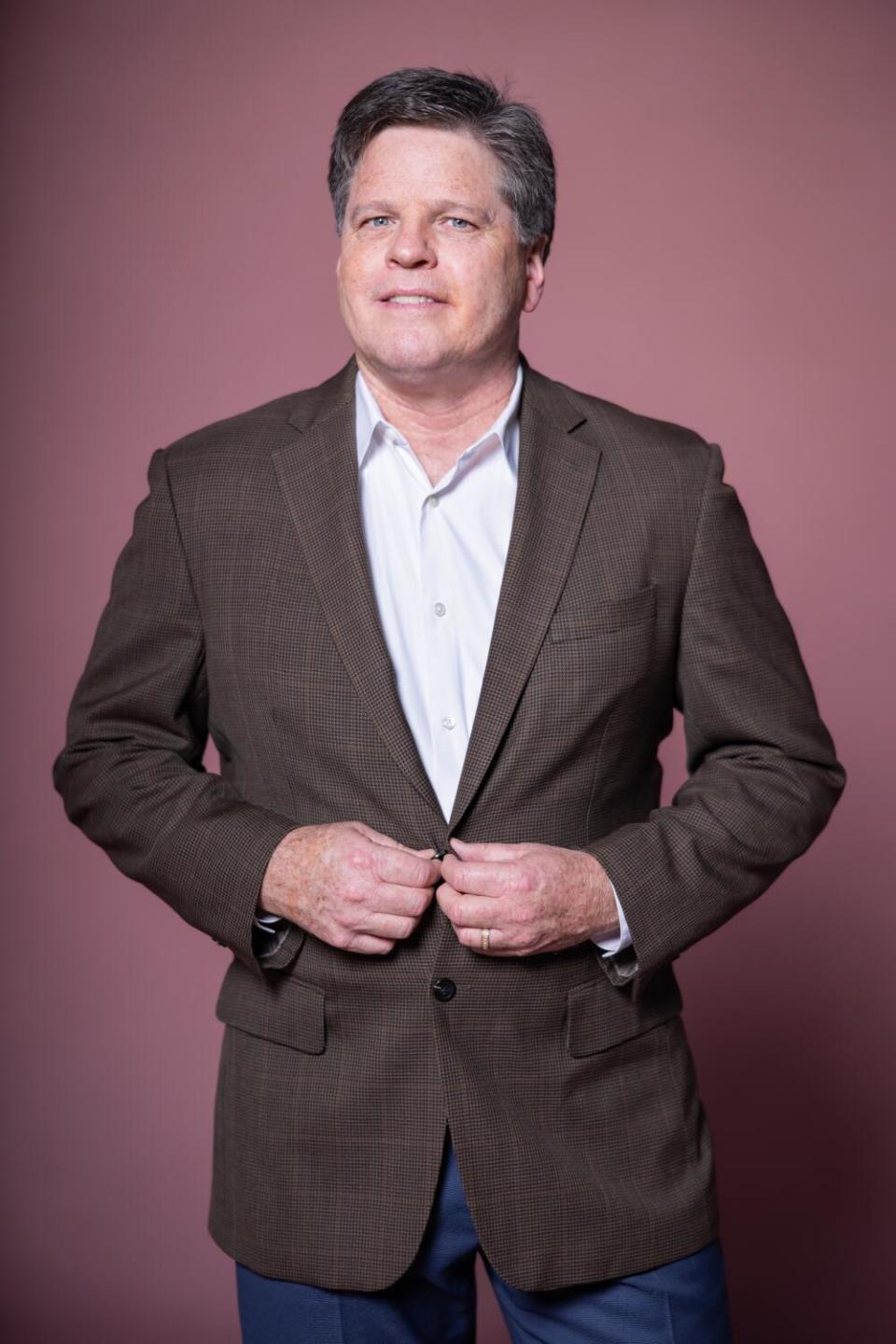About a month after much of the state shut down due to the coronavirus in the spring of 2020, Debbie Deck, who runs a neighborhood food pantry, decided to stay open while many other places closed. But with most of her volunteers having gone home, the pantry was quickly running out of food.
At the same time, demand at her food pantry has increased more than fivefold, from 2,500 people a month to 14,000, with families coming from as far away as Ventura and south Orange County to the West Valley Food Pantry in Woodland Hills.
In desperation, she called Michael Flood, the longtime director of the Los Angeles Regional Food Bank, who was himself in the midst of trying to feed more than twice as many people as before the pandemic.
“Michael, I'm in trouble. I need your help,” Dec told him.
In the early days of the COVID-19 pandemic, essential items ran out, and local grocers that normally donate to the food pantry were no longer able to donate, she explained, plus many of her volunteers were afraid to leave their homes.
“Just hold on a second,” Flood told her. “I'll get back to you.”
Soon after that call, Deck started getting calls from people wanting to help. The Smart & Final Charitable Foundation arrived with an 18-wheeler truck full of food. Amazon Fresh, which had to postpone its grand opening because of the pandemic, donated thousands of pounds of meat and produce. Staff from nearby hospitals volunteered to help set up a drive-thru food distribution center.
“We've been able to stay open through COVID and it's really because of Michael's connections,” Deck said.
Flood, 61, who has led the food bank for more than two decades, has used his deep ties with individual donors and local, state and national government officials to ramp up efforts to meet the growing number of people in need of food during the pandemic.
Michael Flood
Thanks to connections with Los Angeles County officials, the food bank has been able to host large food distributions at huge venues like the Hollywood Bowl. Though the tough times early in the pandemic are over, Flood said the demand for food remains high. Rising food prices and the end of pandemic-era programs are just some of the reasons so many people in the county need help.
Today, Flood and his team work with a network of more than 600 partner agencies, including soup kitchens, homeless shelters and senior programs, to feed about 900,000 people each month.
“The need is still there,” he said.
This article originally appeared in the Los Angeles Times.




